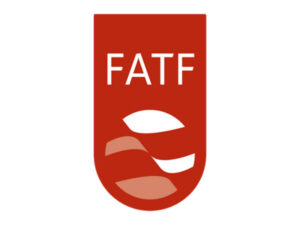GS2 – INTERNATIONAL RELATION

Context:
India has increased its efforts to have Pakistan re-listed on the FATF grey list following the Pahalgam terror attack in April 2025, aiming to combat cross-border terrorism financing.
Financial Action Task Force (FATF)
- Formation: Established in 1989 by the G7 to address anti-money laundering (AML), and expanded in 2001 to focus on countering terrorist financing (CTF).
- Function: FATF oversees countries’ adherence to its 40 Recommendations, guiding nations in addressing illicit financial flows through policies on money laundering, terrorism financing, preventive measures, transparency, and international cooperation.
- Key Areas: FATF emphasizes AML/CTF policies, preventive actions, transparency, the authority of competent bodies, and cross-border cooperation.
- Jurisdictions: FATF comprises 40 members, including 38 jurisdictions and 2 regional organizations (Gulf Cooperation Council, European Commission). India joined FATF in 2010. The headquarters is located in Paris, under the OECD.
Terrorist Financing:
Terrorist financing involves providing funds to support terrorist activities, unlike money laundering, which focuses on disguising the origins of illicit money.
FATF’s Lists:
- Grey List:
Countries with strategic weaknesses in addressing money laundering and terrorist financing are placed on the grey list. These nations must work with FATF to fix these deficiencies. Countries that are considered havens for terror financing and money laundering are put on this list, signaling a risk of moving to the blacklist. - Impact of the Grey List:
Countries on the grey list face heightened scrutiny, leading to increased due diligence by global financial institutions, which restricts foreign investments and financial flows. These countries are closely monitored by FATF to ensure they comply with the 40 Recommendations. - Black List:
Countries with serious deficiencies in tackling money laundering and terrorism financing are placed on the blacklist. These jurisdictions, known as Non-Cooperative Countries or Territories, face severe international sanctions. North Korea, Iran, and Myanmar were on the blacklist as of February 2025. - Consequences of the Black List:
Countries on the blacklist are denied financial aid from institutions like the IMF, World Bank, and ADB, and face significant international economic and financial sanctions.
FATF Evaluations:
FATF conducts detailed assessments of countries’ anti-money laundering and counter-terrorism financing frameworks. After India’s evaluation in September 2024, it was placed in the “regular follow-up” category, acknowledging progress but highlighting areas for improvement, especially in enhancing prosecutions related to money laundering and terrorism financing.
Pakistan’s FATF Compliance:
While FATF has identified risks linked to terrorist groups, particularly those associated with Islamic State and Al-Qaeda in regions like Jammu and Kashmir, India remains critical of Pakistan’s efforts to comply with FATF’s recommendations, citing continued cross-border terrorism as evidence of insufficient progress.




